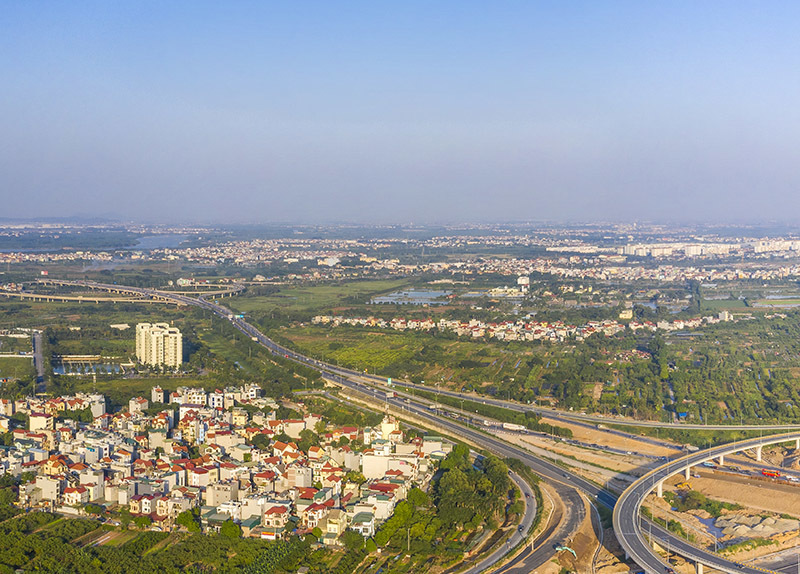Vietnam: Real estate market waits for amended Investment Law
The amended 2020 Investment Law is expected to expand housing supply.
According to the HCM City Real Estate Association (HOREA), the total number of housing projects approved by the HCM City People’s Committee has been decreasing in the last five years, from 130 in 2016 and 2017, to 122 in 2018, to 22 in 2019, and to 53 in 2020.
The total number of housing products created on the basis of capital mobilization has fallen sharply over the last three years (34.2 percent in 2018, 46.8 percent in 2019 and 60.7 percent in 2020 compared with 2017).
One of the reasons behind the fall is the regulation on investor recognition, which makes it difficult for owners to implement projects.
Clause 4, Article 23 of 2014 Housing Law stipulates that only investors with 100 percent of residential land-use rights are recognized as the owners of commercial housing projects.
In HCM City, in 2015-2020, 126 projects used mixed types of land, not 100 percent of residential land, so the investors were not recognized as the owners of the projects. The figure was 82 in Hanoi.
When the 2020 Investment Law took effect, one more subject was recognized – investors with the right to use legal residential land and other types of land. However, the law still excluded other cases, including investors with 100 percent of agricultural land use rights, or the right to use non-agricultural, non-residential land.
Real estate firms say the regulation is impractical, because large projects with land banks according to local land planning cannot satisfy the regulations of the law. In general, new urban areas are mostly developed in areas far from the center, where there are many types of land, except residential land.
“We have to design projects in accordance with local land use planning. However, when we are ready, we are ‘tied’ down by the unreasonable and impractical definition about owners of projects,” N.M.N, an investor in HCM City, complained.
“We even face the risk of going bankrupt as we have poured many resources into the projects,” he said.
This explains why housing prices have been increasing rapidly recently.
Nguyen Van Dinh, Deputy Chair of the Vietnam Association of Realtors (VRA), confirmed that the recent actions of checking, inspecting and tightening control over legal procedures of all real estate projects nationwide have led to a sharp fall in supply.
Meanwhile, the stagnation of real estate projects has caused the loss of revenue of trillions of dong to the state budget.
If each commercial housing project has investment capital of VND1 trillion, the total investment capital of the 126 projects delayed because of the regulation would be VND126 trillion.
As the projects cannot be implemented, the State would fail to collect VND12.6 trillion in value added tax (VAT) (10 percent). And if noting that the profit of the projects is 20 percent, or VND25.2 trillion, the State would fail to collect VND5.040 trillion in corporate income tax (CIT) (20 percent).
The State also loses other sources of revenue from the projects, if counting the commercial services to be provided within the projects.
The loss of revenue could be triple the figure in the whole country, as HCM City accounts for one third of the country’s real estate market.
Law needs amendment
Experts say the amendment of the 2020 Investment Law will ‘untie’ hundreds of commercial housing projects stuck throughout the country.
In a document to the Prime Minister and several ministries, dated September 19, 2021, HOREA stressed that it’s urgent to amend the law to remove difficulties from investors, who have spent a lot of money to develop land in localities but cannot implement projects.
Lawyer Tran Vi Thoai, Director of IB Legal Vietnam, said the amendment will ensure legal uniformity and consistency, including the 2014 Housing Law, 2013 Land Law, 2020 Investment Law, and 2020 amended Law on Construction.
This is also the view of the Ministry of Planning and Investment (MPI).
A real estate expert said once the regulation is amended, the bottlenecks of the real estate market will be removed. When the supply is abundant again, apartment prices may increase because of various reasons, but not at a galloping pace.
D. Anh
Source: https://vietnamnet.vn/en/feature/real-estate-market-waits-for-amended-investment-law-777404.html


 English
English




